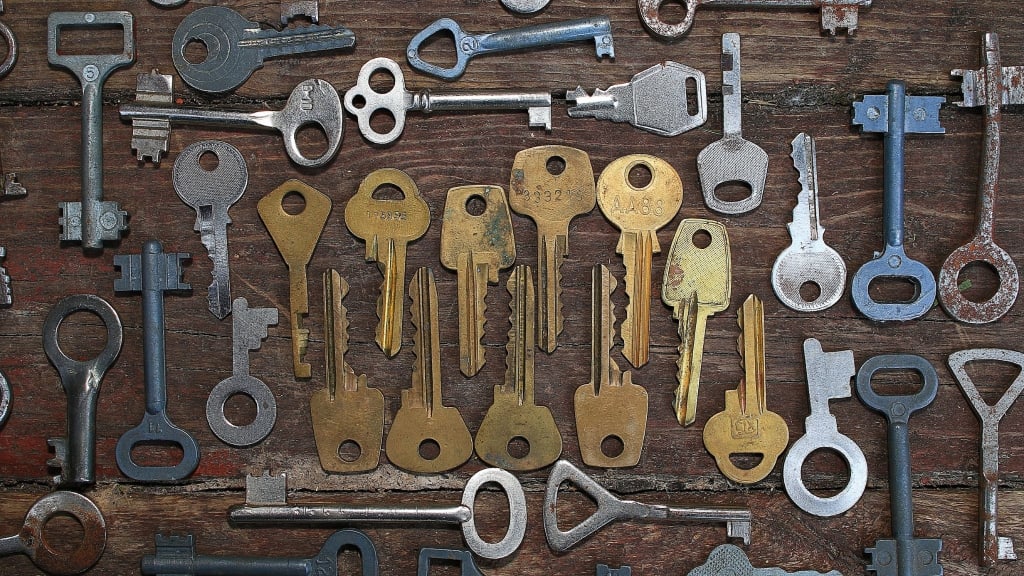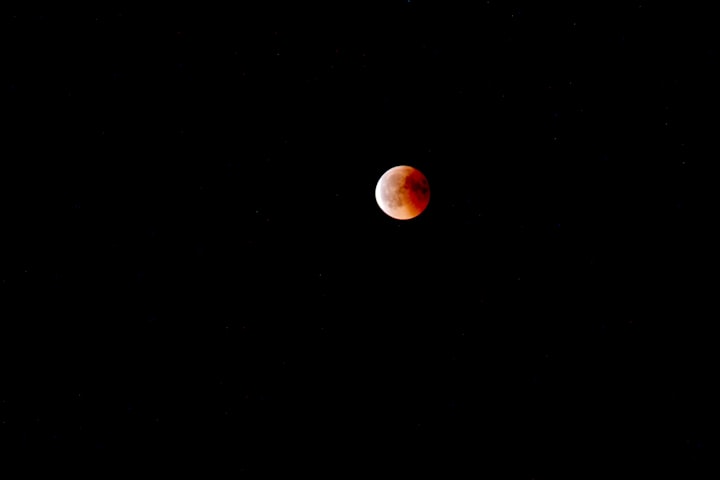The Locksmith
A Dystopian Short Story

The Locksmith
The sound of gunfire faded as I pressed my back to the steel brace door. Darkness enveloped me, the blanket of night keeping me safe… for now. The uprising had started quickly and rapidly grown out of control, as was our aim. Yet, I knew it wouldn’t be long until they found me. They always found us eventually.
They called us insurgents, but we preferred the term liberators. We set people free. We didn’t incarcerate them like the locksmiths. We’d never take away someone’s liberties like that. Sure, the movement was muddied in parts. We’d done things to survive since the locket was installed. But that was the price of freedom. You can’t clean up a city without getting your hands dirty. Everyone knew that.
The ricochet of gunfire clanged against the door, the indents of their bullets enough to spur me forward. And delving further into the shelter, the jangle of keys in my cargo pocket almost pulsing with purpose, I tried to remember the blueprints for this place.
I’d studied them for years – trawled through every map I got my hands on. Yet, the adrenaline surging through my veins narrowed my thoughts into a single objective.
Survive.
I kept walking. Blue lights fizzed into existence above me, triggered by motion, and another round of bullets against the door forced me to pick up my pace. Although sure it would hold out long enough for me to reach the bronze, I didn’t want to take any chances. We had one shot to make this happen, and I wasn’t going to let the sacrifices that got us here be made in vain.
The pounding of my boots against the concrete, rhythmic and resolute, allowed my memories to resurface.
Up ahead, I’d reach a stairwell. I had to use the bronze key to open the door that led into the basement of a townhouse. A change of clothes would be waiting for me and a street pod would take me to the rendezvous point. From there, my comrades would take over.
Another blue light flared above me, illuminating the corridor in front, and the barrier between our districts rose up from the shadows.
I saw the bodies before I smelt them. Guilt tried to stab me in the stomach, the corpses of my fellow citizens – no matter how brainwashed – a tragedy. Everyone deserved liberation, even when they bucked and cried and rallied against it.
But remorse for the part I played in their deaths could wait. I had a job to do.
Covering my mouth with the sleeve of my jacket, I held my breath as I climbed over their pale bodies – stripped of their uniforms and laid side-by-side along the floor. I wanted to cover them with a blanket of some sort, but no such comfort existed in the steel. We lived and died with the clothes on our backs.
Besides, it was usually so hot in our district that warmth wasn’t in short supply. We were the metalworkers of the locket. We worked with fire and forged the comforts every other district enjoyed.
The door to the bronze wasn’t hard to find. In a corridor of seven others, it was the only one with a matching plate. And pulling out the bunch of keys from my pocket, I isolated the bronze unit nestled between the steel and silver designs. Characterised by its skull shape, I let the others fall away as I placed the key in the lock and turned it clockwise.
The door opened easily, sending a jolt of exhilaration and relief cascading through my body.
I don’t know why I didn’t think it would work. We’d spent years meticulously planning every detail of this operation. Whenever we hit a potential snag, we held back and re-strategized. Nothing was rushed, even as our loved ones were picked off and incarcerated for dissension. We’d bided our time, waiting patiently for the perfect moment to fight for our freedom: to liberate our districts from the tyranny of the platinum quarter.
Yet, for the first time, I felt something I’d previously refused to entertain.
This was going to work.
Opening the door, a set of twisted metal stairs greeted me. And wasting no time ascending them, I pushed open the hatch at the top and climbed onto the basement floor of the townhouse.
The first thing I noticed was the smell: earth, must, and the faint stench of citrus. The house was clean – so unlike my bunker in the steel. And it was full of barrels, boxes and other shapes I couldn’t work out. Some resembled birds. Two looked like mockeries of rats. And one housed the overalls I needed to change into.
Slipping into my new getup didn’t take long, the keys now secured inside my apron pocket; and despite my desperation to explore, I stayed on mission. The order told me to exit the basement through another hatch and enter a kitchen, which was the room with a forge.
I followed the instructions and soon found myself in a narrow but tall compartment. Another set of stairs led upwards, while two smaller doors to the left and right remained closed. I picked the one on the right, entered, and immediately knew I was in the right place.
A fire burned on a small stove that took up half of the room, and a well-made table with a matching set of chairs housed a full fruit bowl.
Without thinking, I snatched an apple and bit into it, savouring the acid on my tongue. Then, pocketing an orange and another apple, I polished off my original snack before grabbing the fob hiding under the figs.
Leaving the townhouse, I clocked the pod sitting next to the brick-paved boulevard – a rectangular self-driving vehicle that would take me to the checkpoint.
The street was quiet, which contrasted dramatically with the fire and dissent currently raging in steel. They said the people of the bronze were a reserved folk – that the carpenters and bread makers of the locket lived a humble life.
Showing an aptitude for woodwork or baking was a skill many kids in steel tried to hone. Rumour had it that if a locksmith saw your potential, you and your family could be up-ranked and given keys to the bronze.
Before the liberation movement, your status was defined by the number of keys you possessed. You started with steel, climbed to bronze, and then silver, gold, and finally platinum, which granted you access to all areas. They said it was based on meritocracy. However, no one really believed that, and our movement soon formed to rise up against the ‘precious’ keyholders. However, the rise in thefts and subsequent discord forced the locksmiths to put the locket on lockdown.
Of course, it was just the excuse they needed to isolate and separate us. The biggest dissenters were confined to the steel, while those who played by the rules lived modest lives in bronze or silver. Yet, everyone knew the residents of gold and platinum were nothing more than elitist criminals – that those who lived there paid off corrupt locksmiths so they could languish in luxury. They preached about fairness and societal worth whilst making sure the lesser metals did all the actual hard graft.
And why did we do it? Because they starved and rationed us when we didn’t.
The worst offenders were kept inside The Chamber, which was a prison of the mind. When they learned to capture memories and preserve them, the technology was set to revolutionise the world. Instead, they turned it into the most advanced surveillance system they'd ever thought possible. And we wholeheartedly bought into the ideals of memory preservation. We even kept our favourites in novelty trinkets like heart-shaped lockets – the kind that used to house still images.
Of course, it wasn’t long until they were apprehended and used as evidence for anything they deemed appropriate. Despite knowing that memories are complex and not always reliable, it was only a matter of months before they were weaponised.
If our own thoughts weren’t sacred, what was?
I clenched my fists before using the fob to open the pod door. I’d never been inside one, yet I knew how they worked. After all, the steel district made them.
The dashboard immediately flared into life. Then, overhead, a voice said, “WELCOME, SAM. ENJOY THE RIDE.”
The pod knew my name…
The steel chip buried under my radial artery started to ache – as if it knew it was giving away my location. It wouldn’t be long, I told myself. They said it was no more than ten minutes to the rendezvous point, and my life depended on that being true.
Even so, as the pod started to glide along the path, my hands grew clammy and the knot in my stomach suddenly felt like lead.
The streets blurred as the pod picked up speed, and I distracted myself by admiring various pieces of graffiti sprayed onto random walls. Some called out the 'precious ones,' while others warned of a reckoning.
However, it was the grand-tech billboards that sent a chill along my spine. Notices of known insurgents flashed on the screens, their faces marked with a target that promised a finder’s reward. Where some of my comrades were killed or incarcerated in The Chamber, a green tick marked their apprehension.
My breath short, I tried to keep my gaze dead ahead. Yet, I couldn’t help but make eye contact with some of the bronze residents that walked along the street. I only prayed that, to them, I was nothing more than a baker on their way to work.
Soon, the pod started to slow, and I realised we were nearing the ten-minute mark. My breath quickened as I sat forward in my seat, disbelief that I’d made it consuming me.
And that was when I heard the first drone approach.
They always find you.
The unmistakable whir of its propellers was a nightmare come true, and lunging for the pod door, I threw my full weight against it. It opened easily – too easily as I found myself freefalling onto the path, shoulder first.
The explosion that followed masked the pain searing through my body – sky and earth one as I rolled into a verge, slammed to a stop, and immediately clambered to my feet.
The pod was on fire, the drone already inside and searching for its target.
I dragged myself towards the flaming wreckage, dizzy but determined. Small but deadly guns turned on me, compelling me to slam the door I’d dived out and drop to the floor. I covered my face as a cascade of bullets shattered the glass like the reinforcements were fictional.
Thankfully, the smoke hindered the drone’s accuracy, which gave me a fighting chance. My adrenaline just needed to keep me numb while I made a run for it.
Come on, I urged myself. Get up.
I’d barely made it to my knees before I heard two more drones approaching. They were soon hovering above me, their rotors casting a welcome breeze onto my damp face – along with the not-so-welcome waft of acrid smoke.
Closing my eyes, the world seemed to slow, and through the crack of flames, I heard the birr of a gun taking aim. I even heard it load, home in, and fire.
Yet, oblivion wasn’t forthcoming.
I blinked my eyes open and saw that only two drones remained.
“HI, SAM,” said the one on the left. “DON’T WORRY, WE’VE GOT YOU.”
Two liberators flanked me – seemingly from nowhere. They grabbed an arm each and lifted me to my feet as one said into his radio, “Liberation to base camp: we’ve got the locksmith. I repeat: our locksmith made it.”
Remembering my mission, I reached into my apron pocket. “Here,” I said, pulling out the precious cargo – the culmination of a year’s work. “Here are the master keys.”
By Jodi Nicholls.
About the Creator
Jodi Nicholls
As a freelance content writer, fantasy author, and reluctant minion of darkness, I spend my days devouring words and teaching my cats boundaries (which is relentless, unforgiving work...)
Escapism is life. Find me on Insta: @j.l.nicholls 😊






Comments
There are no comments for this story
Be the first to respond and start the conversation.